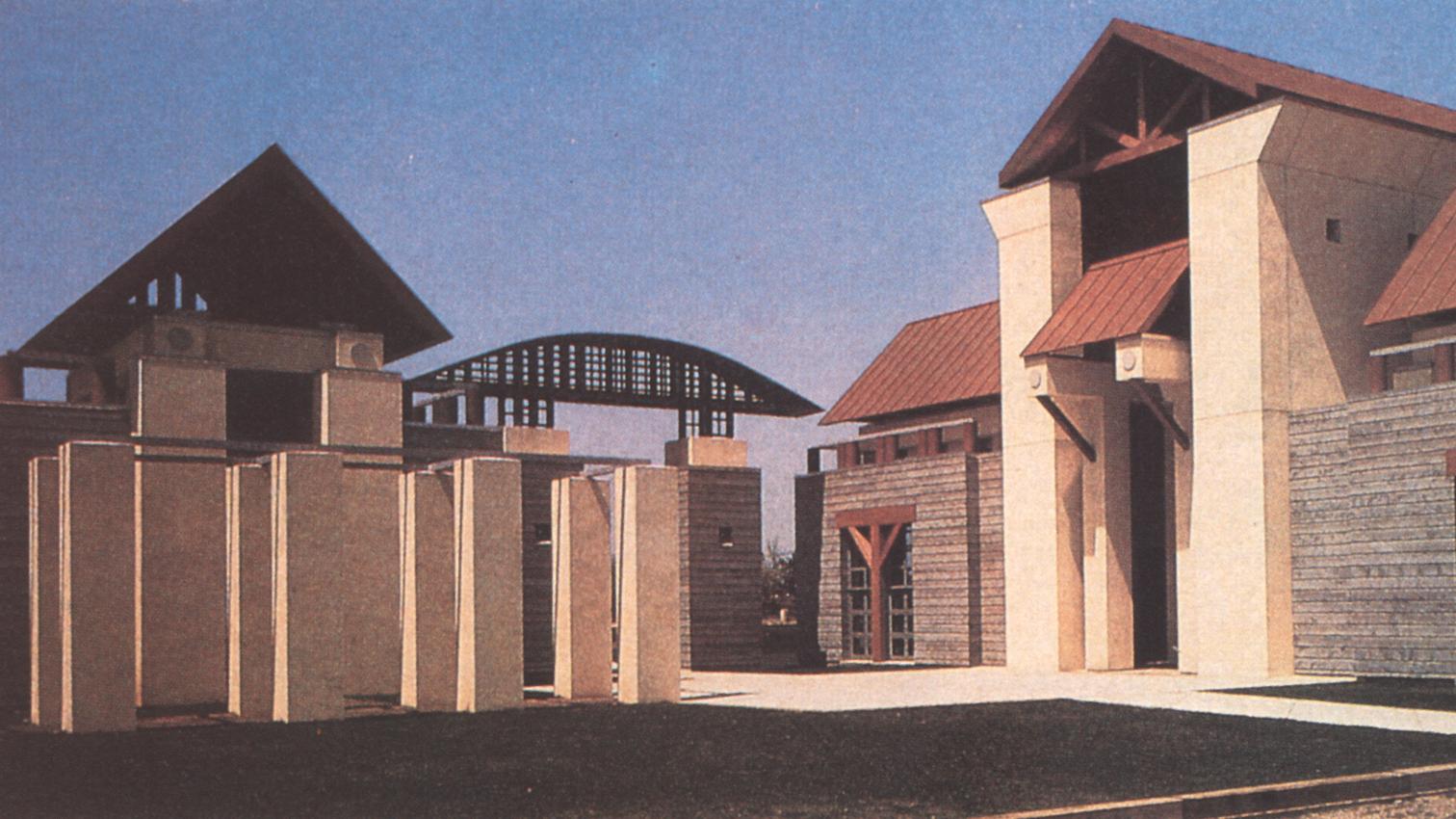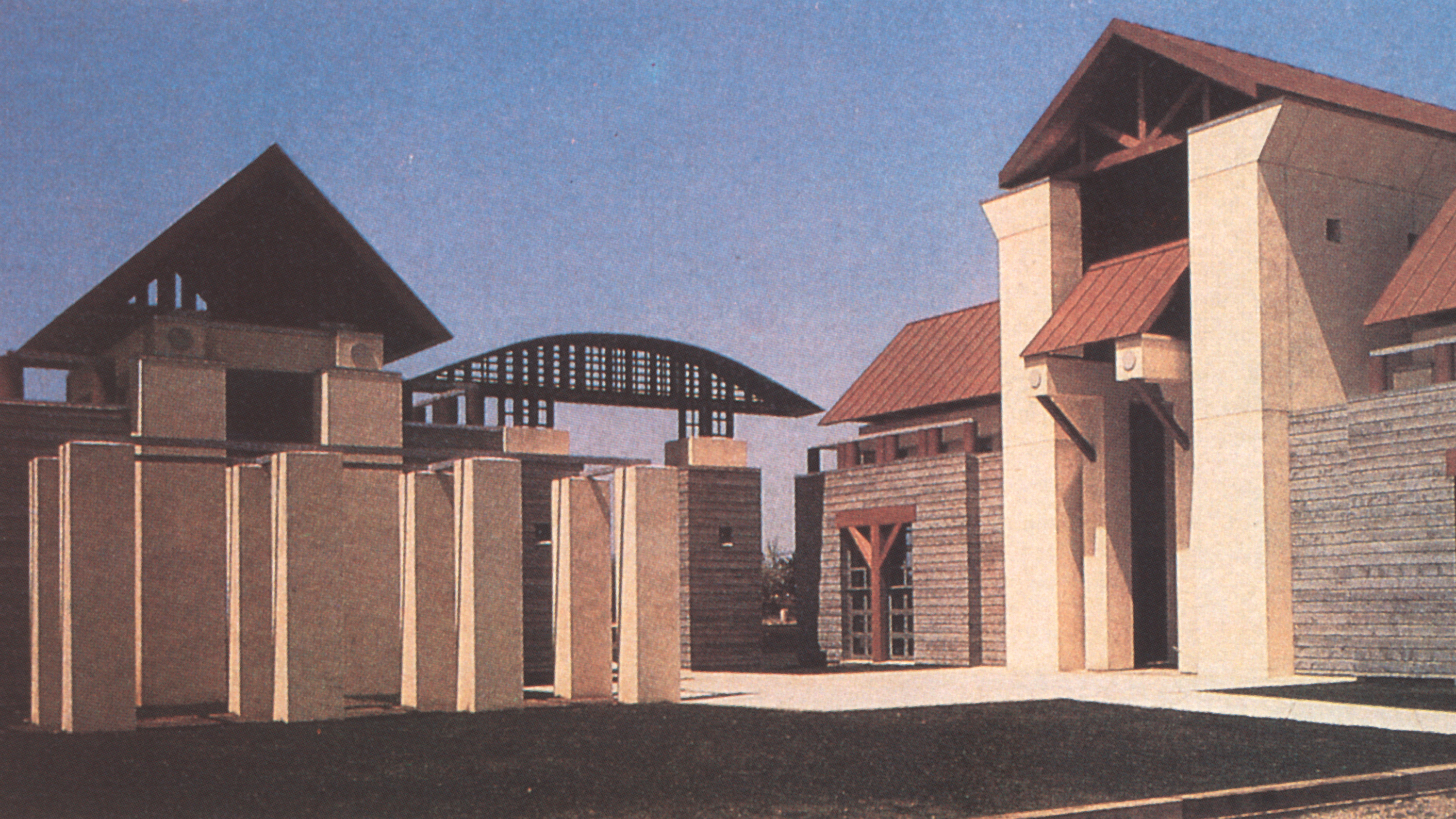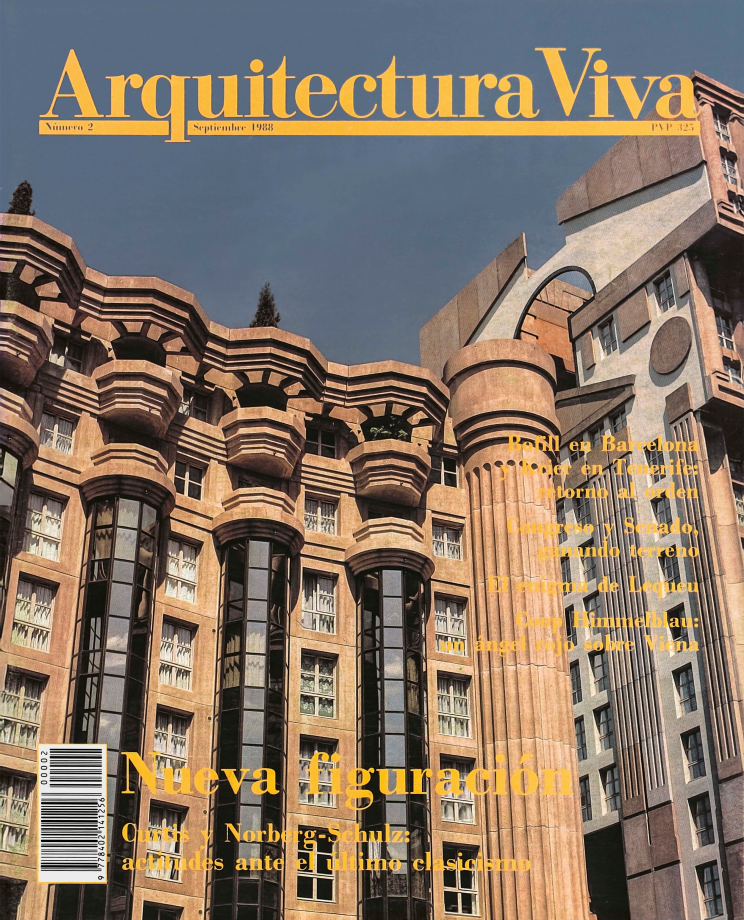
Michael Graves, centro de educación ambiental, Jersey City (Nueva York)
There are times when one is tempted to believe in suprahistorical categories. The announced return to architectural abstraction – proclaimed with great fanfare from the very navel of the elitist culture of our time – makes one think of a repeated and endless cycle that oscillates between the abstract and the concrete, between the geometric and the figurative, always returning to a non-existent starting point.
Because, seen in this way, it is easy to consider the austere architecture of Roman mortar as a reaction against the false representative effects of the attached orders; or the rigid discipline of the Tuscan Quattrocento as a revulsion against the figurative excesses of the flamboyant Gothic; and, of course, the elemental simplicity of Enlightenment as an attack on the inventive prodigality of the Baroque. This is a simplistic way of looking at history, but it does not cease to seduce us when the process is repeated before our very eyes...[+]






